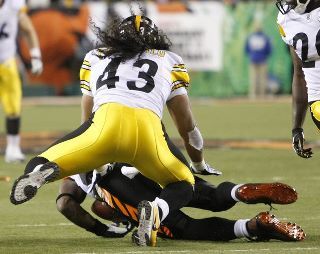Post by misty on Jan 7, 2007 0:22:43 GMT -5
lillian.............« Thread Started on Nov 12, 2006, 3:57pm »
Although poor spelling skills in and of themselves are not considered an LD, poor spelling skills can be a sign of other learning difficulties. At the International Dyslexia Association's national conference, I attended a couple of seminars on spelling, and I want to share what I learned about spelling.
Spelling difficulties can show a weakness in one or more of the following areas: phonological awareness, orthographic knowledge, vocabulary, morphology, and the ability to form a mental picture of the word. Phonological awareness is the ability to segment, sequence, discriminate and identify phonemes (the smallest unit of sounds in language). Orthographic knowlege is the knowledge of alphabetic principals, sound-letter relationships, letter patterns, and conventional spelling rules. Vocabulary knowledge is the knowledge of word meaning. Morphological knowledge is the knowledge of letter-meaning relationships of word parts (suffixes, prefixes, base words, and word roots), understanding the semantic relationship between base words and related words, and the knowledge of modification rules when adding prefixes and suffixes. Finally, creating mental images of words has to do with what many people wrongly believe is the chief way we spell--through visual memory. In fact, it takes all of the above to spell well, and a child must be taught all of these to learn to spell, particularly a child with a language-based LD.
We were given the following list of words and asked which area the misspelled words showed a weakness in:
1. poket for pocket
2. sqwirt for squirt
3. beard for heard
4. mange for manage
5. reddle for riddle
6. corret for correct
7. vaper for vapor
8. bare for bear
9. shuting for shutting
10. dogz for dogs
11. informashun for information
12. majician for magician
13. busaly for busily
14. uvoid for avoid
15. moder for motor
These are the weaknesses shown:
1. Orthographic
2. Orthographic
3. Phonological
4. Phonological
5. Phonological
6. Phonological
7. Mental images of words
8. Mental images of words
9. Morphological Knowledge
10. Orthographic Knowledge
11. Morphological Knowledge
12. Morphological Knowledge
13. Morphological Knowledge, Orthographic
14. Mental Images of Words, Orthographic
15. Mental Images of Words
The people at the seminar started debating a couple of these, which was interesting, but the woman giving the seminar cut the argument short so that we could finish in an hour. I definitely think a couple of the answers are debatable, but what is important to note is that spelling instruction should include much more than memorizing words, and when one sees a child's spelling errors, one should ask, "Why? What is causing this child to have difficulties spelling?" analyze the child's spelling errors, and target in on those particular difficulties. If a child is having a tremendous amount of difficulties in one area, then targeting that area will greatly improve the child's spelling.
Although poor spelling skills in and of themselves are not considered an LD, poor spelling skills can be a sign of other learning difficulties. At the International Dyslexia Association's national conference, I attended a couple of seminars on spelling, and I want to share what I learned about spelling.
Spelling difficulties can show a weakness in one or more of the following areas: phonological awareness, orthographic knowledge, vocabulary, morphology, and the ability to form a mental picture of the word. Phonological awareness is the ability to segment, sequence, discriminate and identify phonemes (the smallest unit of sounds in language). Orthographic knowlege is the knowledge of alphabetic principals, sound-letter relationships, letter patterns, and conventional spelling rules. Vocabulary knowledge is the knowledge of word meaning. Morphological knowledge is the knowledge of letter-meaning relationships of word parts (suffixes, prefixes, base words, and word roots), understanding the semantic relationship between base words and related words, and the knowledge of modification rules when adding prefixes and suffixes. Finally, creating mental images of words has to do with what many people wrongly believe is the chief way we spell--through visual memory. In fact, it takes all of the above to spell well, and a child must be taught all of these to learn to spell, particularly a child with a language-based LD.
We were given the following list of words and asked which area the misspelled words showed a weakness in:
1. poket for pocket
2. sqwirt for squirt
3. beard for heard
4. mange for manage
5. reddle for riddle
6. corret for correct
7. vaper for vapor
8. bare for bear
9. shuting for shutting
10. dogz for dogs
11. informashun for information
12. majician for magician
13. busaly for busily
14. uvoid for avoid
15. moder for motor
These are the weaknesses shown:
1. Orthographic
2. Orthographic
3. Phonological
4. Phonological
5. Phonological
6. Phonological
7. Mental images of words
8. Mental images of words
9. Morphological Knowledge
10. Orthographic Knowledge
11. Morphological Knowledge
12. Morphological Knowledge
13. Morphological Knowledge, Orthographic
14. Mental Images of Words, Orthographic
15. Mental Images of Words
The people at the seminar started debating a couple of these, which was interesting, but the woman giving the seminar cut the argument short so that we could finish in an hour. I definitely think a couple of the answers are debatable, but what is important to note is that spelling instruction should include much more than memorizing words, and when one sees a child's spelling errors, one should ask, "Why? What is causing this child to have difficulties spelling?" analyze the child's spelling errors, and target in on those particular difficulties. If a child is having a tremendous amount of difficulties in one area, then targeting that area will greatly improve the child's spelling.




